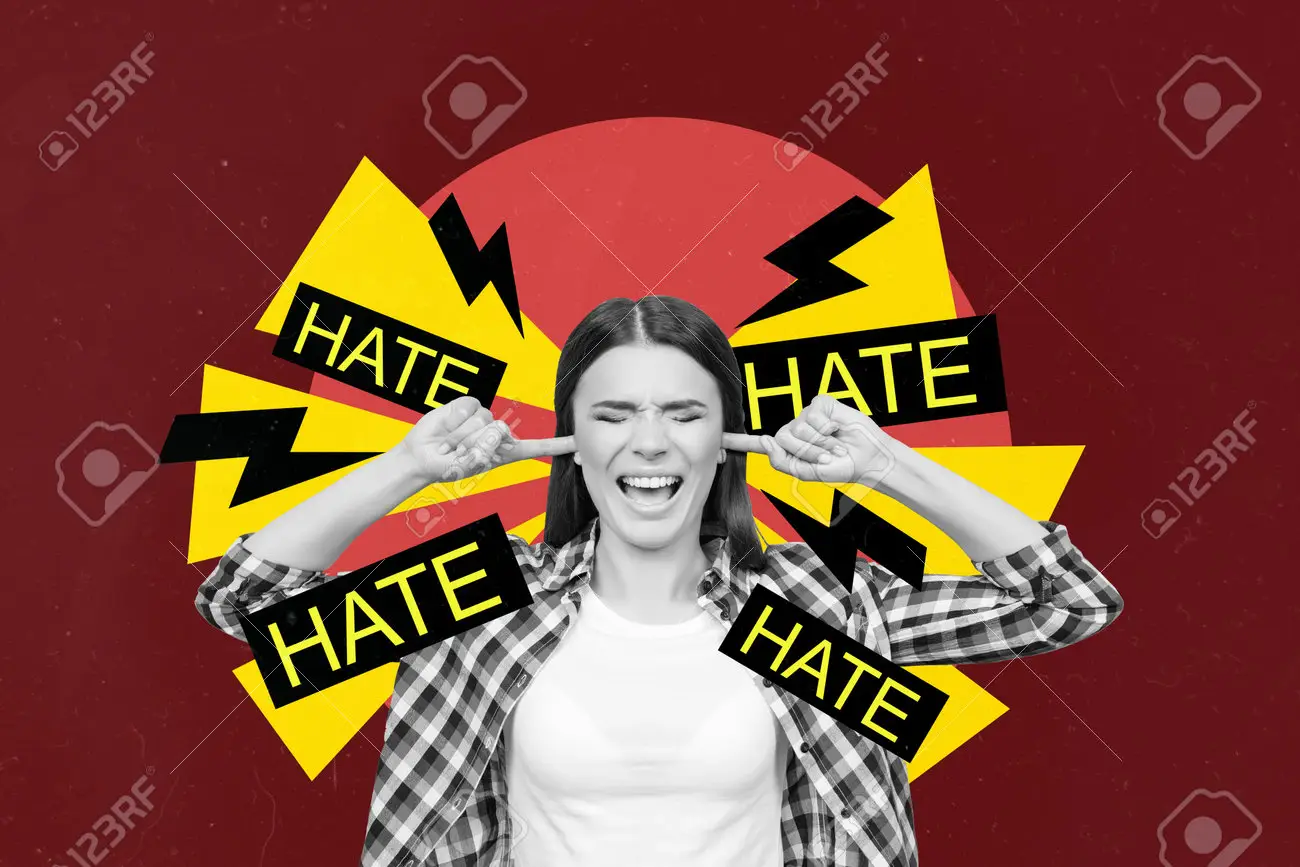Introduction
Fashion is a powerful force in our lives, from the clothes we wear to the trends we follow. But not everyone loves fashion. In fact, many people have a deep-seated hatred for the fashion industry. Here are 10 undeniable reasons why people hate fashion. From its environmental impact to its lack of inclusivity, these are the reasons why some people are turned off by the fashion industry.
Undeniable Reasons People Hate Fashion
Fashion has been around for centuries, and with the invention of the internet, it has become a key part of our lives. However, not everyone enjoys fashion. There are a variety of reasons why people may not be fond of the fashion industry, and in this blog, we’ll be looking at 10 undeniable reasons why people hate fashion.
1. It’s Too Expensive: Whether it’s the cost of designer clothes or just the cost of staying on-trend with the latest styles, fashion can be expensive. This is one of the main reasons why people avoid investing in fashion.
2. It’s Not Sustainable: The fashion industry is not known for its sustainability, and this is a huge turnoff for many people. Poor production practices, unethical labor, and waste of resources is just some of the problems associated with the industry.
3. It’s Too Trend-Focused: Fashion can be seen as superficial and focused on trends rather than individual style. This can be a major issue for people who don’t want to conform to what’s popular, or just want to express their individual style.
4. It’s Too Elitist: The fashion industry is often seen as elitist and exclusive. This can be off-putting for people who don’t feel like they’re part of the “in-crowd”.
5. It’s Too Fast-Paced: It seems like fashion trends come and go in the blink of an eye. This makes it hard to keep up with the latest styles, and can be a major annoyance for those who prefer to stick to their own style.
6. It’s Too Sexualized: The fashion industry is often criticized for its use of sexualized models, which can be off-putting to some people.
7. It’s Too Gimmicky: Sometimes, the fashion industry can be seen as gimmicky, with trends that are fleeting and often ridiculous. This can be a real turnoff for those who prefer classic and timeless styles.
8. It’s Too Gender-Biased: The fashion industry can be seen as gender-biased, with certain styles and trends often being aimed at either men or women. This is a real issue for those who don’t conform to gender stereotypes.
9. It’s Too Fickle: The fashion industry is full of fads and trends that come and go in the blink of an eye. This can be a major annoyance for those who prefer to stick to timeless classics.
10. It’s Too Alienating: The fashion industry can be alienating for those who don’t fit into the “in-crowd”, making it difficult to find clothes that fit and flatter.
These are just some of the many reasons why people may dislike the fashion industry. Whether it’s because of the cost, the lack of sustainability, or the shallow nature of fashion trends, it’s clear that there are many valid reasons why someone may not enjoy fashion.
The Price Tag
Fashion is a powerful tool that has the ability to transform our lives. From the way we dress, to the way we interact with the world, fashion plays an important role in our lives. But it also comes with a hefty price tag. Many people are put off by the cost of fashion, and it’s easy to see why. Here are 10 undeniable reasons why people hate fashion and its price tag.
1. Costly Clothing:
Clothing is one of the biggest expenses when it comes to fashion. The cost of designer clothes, luxury items, and trendy pieces can add up quickly. This leaves many feeling like they can’t keep up with the latest fashion trends.
2. Expensive Accessories:
Accessories such as shoes, bags, jewelry, and watches can also be expensive. Many people don’t want to invest in expensive items that will only last for a few months.
3. High Quality Clothes:
High quality clothes are also expensive. Many people don’t want to invest in clothes that will last and cost more money than cheaper items.
4. Pressure to Buy the Latest Trends:
Fashion is constantly changing, so keeping up with the trends can be difficult. People feel pressure to buy the latest trends in order to stay fashionable.
5. Waste of Money:
Many people feel like fashion is a waste of money. They feel like they’re spending too much money on something that won’t last long.
6. Uncomfortable Clothing:
Many fashion items can be uncomfortable. Things like tight jeans, high heels, and constricting necklines can be uncomfortable to wear.
7. Unethical Practices:
Many people are aware of the unethical practices that happen in the fashion industry. People don’t want to support companies that use sweatshop labor or exploit children.
8. Limited Sizes:
Many fashion items are limited to certain sizes. This can be discouraging for people who don’t fit into these sizes.
9. Pressure to Spend:
Many fashion companies use tactics such as discounts and sales to encourage people to buy more. This can be discouraging for people who don’t want to be pressured to spend more money.
10. Unrealistic Beauty Standards:
Many fashion companies promote unrealistic beauty standards. This can be discouraging for people who don’t fit these standards.
Overall, fashion can be an expensive hobby. Many people find the cost of fashion to be too high and don’t want to invest in expensive items. The pressure to keep up with the latest trends and the unethical practices in the fashion industry can also be discouraging. It’s important to remember that fashion isn’t just about buying expensive items, it’s about finding clothes and styles that make you feel confident and comfortable.
Unsustainable Practices
The fashion industry is a powerful and ever-growing force in the world. Unfortunately, it’s also one of the most unsustainable industries out there. From the production of clothes to the disposal of them, there are many unsustainable practices that have a huge environmental impact. Here are 10 undeniable reasons why people are growing to hate the fashion industry:
1. Fast Fashion: Fast fashion is the production of clothing at a faster rate and cheaper cost, making it more accessible to the public. However, fast fashion is incredibly unsustainable due to the materials used, the energy required to produce clothing, and the amount of waste created.
2. Poor Working Conditions: Many of the factories producing clothing for major fashion brands have been found to be unsafe, with inadequate ventilation and poor working conditions. This puts the workers at risk, as well as the environment.
3. Water Pollution: The fashion industry is one of the largest contributors to water pollution due to the chemicals used in the production of clothing. These chemicals are then released into the environment, which can have a devastating effect on ecosystems and human health.
4. Textile Waste: The fashion industry produces a huge amount of textile waste, which is often not recycled or reused. This leads to landfills becoming full of clothing and other materials, which can take centuries to decompose.
5. Animal Cruelty: Many fashion brands use animal fur and skin in their products, which is cruel and unethical. Animals are often kept in horrible conditions and treated cruelly in order to obtain the fur and skin.
6. Plastic Pollution: The fashion industry is one of the largest producers of plastic. This plastic is used in the production of clothing, as well as packaging for clothes and accessories. This plastic often ends up in our oceans, causing devastating environmental damage.
7. Unethical Production: Many fashion brands use unethical production methods, such as child labor and sweatshops, in order to cut costs and increase profits. This is exploitative and unjust.
8. Excess Consumerism: The fashion industry encourages excessive consumerism, which leads to more waste and more unsustainable practices. People are encouraged to buy more and more clothes, which are often not reused or recycled.
9. Lack of Transparency: Many fashion brands do not make their production processes and sustainability initiatives clear to the public. This lack of transparency makes it difficult for people to make informed decisions about their clothing purchases.
10. Environmental Impact: The environmental impact of the fashion industry is huge. The production of clothing and accessories uses a lot of energy and resources, while the disposal of them often leads to landfills becoming full of waste.
It’s clear that the fashion industry needs to make some major changes if it wants to become more sustainable. People are becoming increasingly aware of the industry’s unsustainable practices and are growing to hate it as a result. We all have a responsibility to make our fashion choices more sustainable, and to support fashion brands that are doing their best to be ethical and sustainable.
Lack of Inclusivity
The fashion industry is one of the most influential and powerful industries in the world. It has the power to shape people’s opinions, to create trends, and to make statements about social issues. Unfortunately, the fashion industry has also been criticized for its lack of inclusivity. Here are 10 undeniable reasons why people hate fashion due to its lack of inclusivity:
1. Exclusion of Certain Body Types: Many fashion designers have been criticized for excluding certain body types from their collections. This often leads to people feeling excluded and like they don’t belong in the fashion world.
2. Unattainable Beauty Standards: The fashion industry has been accused of setting unrealistic beauty standards that are often unattainable. This leaves many feeling inadequate and like they don’t measure up to the industry’s standards.
3. Limited Representation of Races: The fashion industry has been criticized for its lack of racial diversity. From the runway to the magazines, many people of color feel underrepresented in the fashion world.
4. Limited Representation of Gender: The fashion industry often focuses on traditional gender roles and binary gender identities, leaving those with a more diverse gender identity feeling excluded.
5. Gender-Specific Clothing: Many fashion designers produce clothing that is gender-specific, which can make people feel like they have to conform to specific gender roles.
6. Pricey Clothing: Many fashion designers produce clothing that is expensive and out of reach for many people. This leaves people feeling like they can’t afford to keep up with the latest trends.
7. Unethical Manufacturing Practices: Many fashion designers have been accused of using unethical manufacturing practices, which has led to people feeling like they are supporting an industry that doesn’t have their best interests in mind.
8. Limited Representation of Disabilities: People with disabilities often feel excluded from the fashion world due to the lack of representation of disability in fashion.
9. Limited Representation of Plus Sizes: The fashion industry has been criticized for its lack of plus-size representation. This has left many feeling like they don’t have access to fashionable clothing.
10. Lack of Sustainable Practices: Many fashion designers have been accused of producing clothing that is not environmentally friendly. This has left many feeling like they are contributing to an industry that is not doing enough to protect the environment.
Overall, the fashion industry has been criticized for its lack of inclusivity. From exclusion of certain body types to limited representation of races and genders, many people feel excluded from the fashion world. There is still more work to be done to make fashion a more inclusive and accepting industry.
Unrealistic Representation
The fashion industry is a major contributor to the global economy. It’s worth billions of dollars, and has a lot of influence in our society. Unfortunately, it’s also known for creating unrealistic representations of beauty and body image. In today’s world, there’s a pressure to look a certain way, and it’s leading to a lot of body image issues. Here are 10 undeniable reasons people hate fashion and the unrealistic representations it creates:
1. Unrealistic body standards – The fashion industry promotes an idealized body image that is often unattainable for most people. This can lead to body image issues, such as low self-esteem, depression, and eating disorders.
2. Pressure to keep up with trends – The fashion industry is constantly changing, and keeping up with the latest trends can be expensive. This can lead to feelings of inadequacy or even guilt if someone isn’t able to keep up with the trends.
3. Sexual objectification – The fashion industry often portrays women as sexual objects, which can be damaging to women’s self-esteem. It can also lead to the commodification of women’s bodies and an overall lack of respect.
4. Unrealistic beauty standards – The fashion industry often promotes an idealized beauty standard that is often unattainable for most people. This can lead to body image issues, such as low self-esteem, depression, and eating disorders.
5. Unhealthy dieting – Many people feel pressure to maintain a certain weight or size, and may resort to unhealthy methods of dieting or exercise to achieve this. This can lead to long-term health problems.
6. Exclusionary sizing – Many fashion brands only offer clothing in smaller sizes, which can be exclusionary to plus-sized individuals. This can lead to feelings of inadequacy or even body-shaming.
7. Costly wardrobe – Keeping up with the latest trends can be expensive, and this cost is often passed on to the consumer. This can make it difficult for people with lower incomes to keep up with the latest trends.
8. Animal cruelty – The fashion industry often relies on the use of animal fur and skins for clothing and accessories. This can lead to the mistreatment and even death of animals in the industry.
9. Fast fashion – Many fashion brands produce clothing quickly and cheaply, leading to an unsustainable amount of waste. This can have a negative effect on the environment.
10. Poor working conditions – The fashion industry is often associated with unethical labor practices, such as low wages and long hours. This can lead to exploitation of workers and even unsafe working conditions.
These are just a few of the many reasons why people hate fashion and the unrealistic representations it creates. From promoting an unattainable body image to contributing to environmental damage, the fashion industry has a lot to answer for. It’s up to us to demand better from the fashion industry and reject unrealistic beauty standards.
Limited Sizing Options
The fashion industry is an ever-evolving one, but one thing that has remained constant is the issue of limited sizing options. Consumers have been complaining for years about the lack of diversity in sizing for garments, and it’s no surprise that there are countless reasons why people hate fashion due to this. Here are 10 undeniable reasons why people hate fashion because of limited sizing options:
1. Unavailable Clothing – Many people find that their desired clothing items are not available in their size, leaving them feeling frustrated and excluded from the fashion industry.
2. Uncomfortable Fit – Clothing that isn’t made to fit the wearer’s body type can create an uncomfortable fit, leading to a lack of confidence and feeling of inadequacy.
3. Unflattering Styles – Clothes that are not available in one’s size can also lead to unflattering styles, making it difficult to find clothing that looks good and is flattering to one’s body type.
4. Unwanted Attention – Many people feel that the limited sizing options in fashion draw unwanted attention to themselves and their body, making them feel self-conscious and embarrassed.
5. Lack of Representation – The lack of diversity in sizing options in the fashion industry can make it difficult for people of certain body types to find clothing that represents them and makes them feel included.
6. Limited Choices – Limited sizing options also mean limited choices for the consumer, leaving them feeling frustrated and disappointed.
7. Costly Alterations – For those who do manage to find clothing in their size, they often must pay extra for costly alterations in order to get the perfect fit.
8. Unavailable Trends – Many of the latest fashion trends are often not available in larger sizes, making it difficult for people of all sizes to stay up-to-date with the latest styles.
9. Inaccurate Sizing – Sizing charts can often be inaccurate, leading to a garment not fitting properly and not providing the desired look.
10. Exclusion – People of all sizes feel excluded from the fashion industry due to limited sizing options, creating a feeling of inadequacy and disappointment.
It’s clear that limited sizing options in the fashion industry are a major problem for many people. Consumers are demanding more diversity in sizing, and it’s time for the fashion industry to take notice and make changes.
Uncomfortable Clothing
The fashion industry is a multi-billion dollar industry that is constantly changing and evolving. We all love to look fashionable, but there’s no denying that some pieces of clothing can be downright uncomfortable. From tight jeans to high-heeled shoes, sometimes fashion can be more pain than pleasure. Here are 10 undeniable reasons why people hate uncomfortable clothing:
1. Unflattering Fit. No one wants to wear something that doesn’t fit them well. Unflattering fits can make people look larger than they really are. It can also be very uncomfortable to wear clothing that doesn’t fit properly.
2. Restrictive Movement. Clothing that is too tight can restrict movement and be uncomfortable to wear. Clothing that is too loose can also be uncomfortable as it tends to move around, causing chafing and irritation.
3. Skin Irritation. Some fabrics can cause skin irritation and chafing. This can be especially uncomfortable when the clothing is tight or made of synthetic fabrics.
4. Unsupportive. Some clothing, such as bras and shoes, aren’t supportive enough and can cause discomfort. Unsupportive clothing can lead to back pain, foot pain, and other aches and pains.
5. Sweaty. Synthetic fabrics don’t breathe as well as natural fabrics, making them uncomfortable in hot weather. They can also cause excessive sweating which can be embarrassing.
6. Uncomfortable Accessories. Accessories such as hats, scarves, and jewellery can be uncomfortable if they are too tight or heavy.
7. Uncomfortable Footwear. High heels, sandals, and flip-flops can all be uncomfortable to wear. High heels can cause foot and back pain, while sandals and flip-flops can cause blisters and other foot problems.
8. Unnatural Feel. Some fabrics, such as polyester and spandex, can feel unnatural and uncomfortable against the skin.
9. Itchy. Some fabrics, such as wool, can be scratchy and itchy against the skin.
10. Uncomfortable Fabrics. Some fabrics, such as linen and silk, tend to wrinkle easily and can be uncomfortable to wear.
Uncomfortable clothing is a common complaint among fashion lovers. It can be difficult to find clothing that is both fashionable and comfortable. However, with a little patience and research, it is possible to find clothing that looks great and feels great.
Lack of Diversity in Designers
Diversity in the fashion industry has long been an issue. From a lack of representation in runway shows to a lack of diversity in designers, the industry has not been very welcoming to people of color, and this has caused a lot of frustration among consumers. It’s time for the fashion industry to take a stand and recognize the importance of diversity. Here are 10 undeniable reasons why people hate fashion due to a lack of diversity in designers:
1. Unrepresentative Fashion Weeks: Fashion weeks are a major event in the fashion industry, but unfortunately, they are often filled with white models and designers. This gives people the impression that fashion is only for white people, which is simply not true.
2. Limited Design Range: When designers don’t have a diverse range of people to draw inspiration from, the designs can become stale and uninspired.
3. Lack of Inclusivity: Not having a diverse range of designers in the fashion industry means that certain cultures and communities may not be represented. This can make people feel like their voice is not being heard or that their style is not valued.
4. Unrelatable Designs: When designers lack diversity, it can be difficult for people to relate to the designs because they may not be able to see themselves in them.
5. Unrepresentative Images: Without a diverse range of designers, the images used in fashion campaigns and magazines often lack representation. This can lead to people feeling excluded and unimportant.
6. Lack of Opportunity: Since there is a limited number of designers from diverse backgrounds, it can be difficult for people of color to break into the fashion industry.
7. Uninspiring Ideas: When there is a lack of diversity in fashion, the ideas and concepts can become stagnant and unoriginal.
8. Unattainable Goals: Without a diverse range of designers, it can be difficult for people to set realistic goals in fashion. This can lead to a feeling of hopelessness and discouragement.
9. Unappreciated Creativity: Without a diverse range of designers, the creative work of people from different backgrounds can often go unrecognized.
10. Unmotivated Designers: Without a diverse range of designers, it can be difficult for people of color to feel inspired and motivated to pursue a career in fashion.
It is time for the fashion industry to take a stand and recognize the importance of diversity in fashion. By doing so, they can create a more inclusive and representative industry that values the creativity of people from all backgrounds.
Conclusion
Overall, there are 10 undeniable reasons why people hate fashion. From the high cost of designer clothes to the fast-moving trends, fashion can be incredibly overwhelming. The industry also has a tendency to dictate how women should look and behave, which can be detrimental to female empowerment. Additionally, the lack of size and body diversity in the fashion world has caused many people to feel excluded. Furthermore, the industry’s unethical practices and environmental impact are both extremely concerning. Ultimately, fashion can be a polarizing topic and these are just a few of the reasons why many people are not fans.













